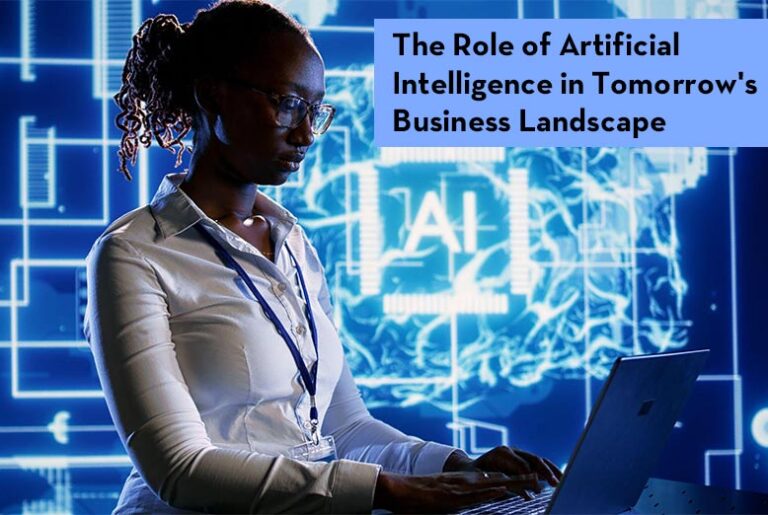Unless you’ve been living under a rock for the last while, you’ve probably heard of the advent of Artificial Intelligence, or AI. There are a range of AI companies and tools proliferating the internet, and intense debate about topics such as AI-generated art, writing, and work. Tools like ChatGPT, Meta’s Llama3, and OpenArt have all been developed to assist us with various things, such as finding information and helping us work. AI has the potential to change the world, and who knows what the future may hold for humanity as we continue to utilize these powerful tools.
And AI may drastically change tomorrow’s business landscape. If you’re considering enrolling in a Master’s of Business Administration or MBA, you might be wondering what are the questions to ask an MBA admissions officer. One of these might be the role that AI plays in business administration and operations. Lucky for you, we’ve prepared this helpful article that explores this topic in more detail. Continue reading to learn more.
AI Will Add Value to Business
AI technologies are likely to generate incredible value across various business products and services in a wide range of sectors and industries. Companies are already using AI to personalize product recommendations for customers, find production anomalies and remedy them, personalize marketing campaigns to increase conversion and sales, automate processes, identify fraudulent activities, and simultaneously save on cost. As AI continues to grow and develop, businesses will likely adopt more AI tools to continue to create value and push down operating costs and staffing.
AI Automation
AI has the potential to automate processes and systems that have traditionally relied on human labor and skill to achieve business tasks and outcomes.
New generations of more capable autonomous AI-driven systems are close to appearing in business environments ranging from autonomous delivery and transport vehicles on roads to those already existing, such as automated check-outs in grocery and department stores. AI has made especially huge strides in recent years, as machine-learning algorithms have become exponentially more sophisticated and can utilize huge increases in computing power and the massive growth in data available to train algorithms. Spectacular breakthroughs are generating headlines around the globe, many involving beyond-human capabilities in areas like computer vision, natural language processing, and complex games such as Go and Chess.
As automation continues to improve, AI technology may make some roles redundant, such as data entry, data analysis, translation, and customer service. Let’s discuss how AI will change customer service further.
Customer Service
Many large corporations already use AI for customer service, with the majority of web chatbots acting as the first point of contact for a customer with an issue. An automated bot can detect keywords and provide solutions to people before having to connect them to an agent. For instance, an AI chatbot can help a customer track an order, request a refund, or lodge a complaint against the company, all without the need for a human. Only when problems are complex or require a tailored response can the AI chatbot transfer the chat to a human customer service agent to escalate the issue.
AI in Cybersecurity for Business
Cybersecurity is a massive issue for many large corporations, especially with hackers targeting large companies with malware, ransomware, and other malicious activities.
In particular, AI innovations are already causing a rapid evolution in the cybersecurity industry, namely as a response to advancements of AI-powered ransomware and malware. With malware that’s capable of machine learning being released by hackers and crackers across the internet, the role of cybersecurity technicians has become more vital than ever before. The natural solution that they’ve developed to combat this rise of AI malware is AI-driven cybersecurity solutions.
Before AI evolved to the level it is today, traditional cybersecurity methods relied heavily on human intervention and specific human-maintained systems and software. In contrast, AI cybersecurity solutions use machine learning algorithms that can identify, detect, and respond to known and novel cyber threats in real-time without having to be compiled or inputted by a human cybersecurity professional. This helps to prevent malicious code and applications from infecting a company, causing havoc on American corporation computer networks.
These advanced AI algorithms are trained using huge inputs of data, such as historical threat information and other device data. Using this data, AI digital security solutions can effectively ‘learn’ and train themselves to identify more sophisticated threat patterns that humans might have difficulty detecting due to the complexity of the data. This removes our reliance on human intervention, providing US security firms with dynamic methods to safeguard US government departments, as well as schools, hospitals, and all of the other unique working environments that make up the country’s thriving national economy.
As AI systems advance, threats will evolve, too. The business landscape of tomorrow may look like AI cybersecurity systems actively working to defend against AI cyber threats, with advances in technology on both sides keeping companies on their toes.
AI in Science and Healthcare
AI is also being used in areas ranging from material science to medical research and climate science, as these have implications for business and society in general. Application of the technologies in these and other disciplines could help tackle societal challenges that have major economic implications. For example, researchers at Geisinger have developed an AI algorithm that can reduce diagnostic times for intracranial hemorrhaging by up to 96 per cent. For private healthcare companies, this can mean massive savings and delivering better value to health insurance companies and customers.
In Conclusion
This informative article has shared all about the role of artificial intelligence in tomorrow’s business landscape, from delivering more value for business to customer service, cybersecurity, and healthcare industries.
Also Read: AI at the Ledger: Revolutionizing Financial Management



